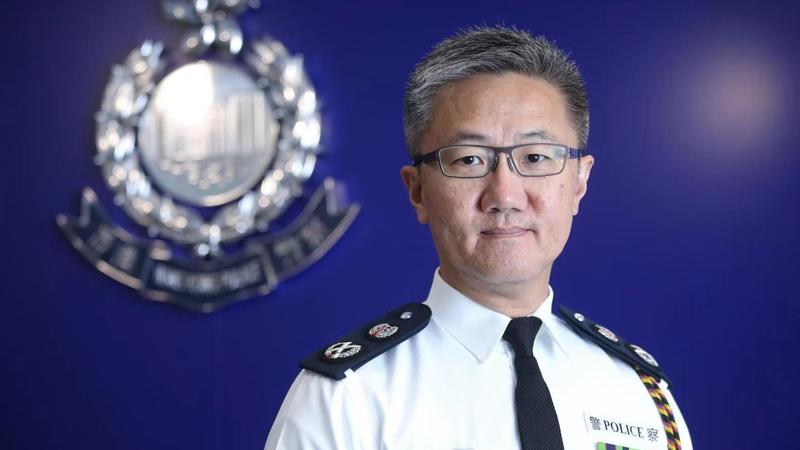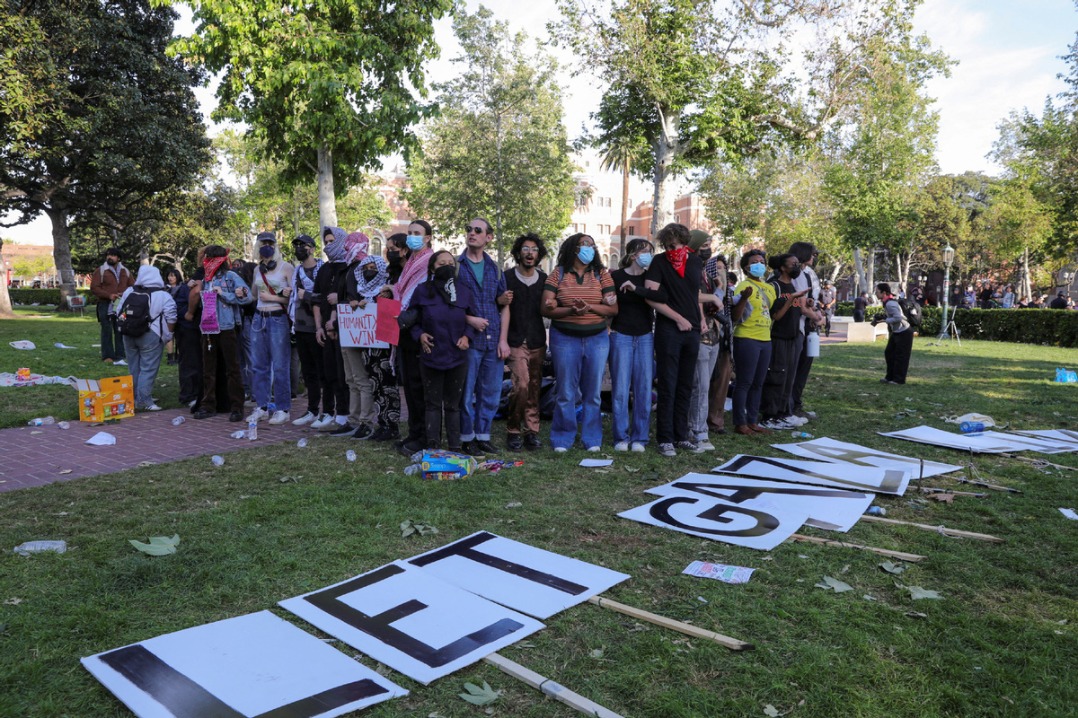HK police to strengthen ties with schools, parents
By Willa Wu | chinadaily.com.cn | Updated: 2021-02-24 17:57

The Hong Kong Police Force will increase its outreach efforts to local schools, parents and student groups this year in a bid to build trust in the city's most visible law enforcement agency and an awareness among youngsters of why it's important to follow the law, Deputy Commissioner Raymond Siu Chak-yee said on Monday.
The work will include regular briefings to explain policies on such issues as how cases involving juveniles are handled and to debunk false information and accusations that have been levied against the force on public platforms, Siu told China Daily during a one-on-one interview.
Siu said the police mulled over the idea soon after the 2019 social unrest quieted down in the spring of 2020, as they found young people in the city were major victims of the often-violent street protests. Of 10,200 people arrested for crimes allegedly committed during the unrest, more than 4,000 were students, police data as of December 2019 show.
Talking about his conversations with these youngsters back at the station, Siu said two things struck him most. One is that many of them were misled and incited by things on social media.
He remembered how many said they believed they would be assaulted or even sexually abused by the police after being caught.
"Because that's what they have heard from time to time… During this social unrest, the kids have been very much affected by fake news, fake reports," Siu said.
The other thing Siu said he noticed was a reluctance to admit crimes and show remorse among juvenile offenders. According to police data, only 19 juveniles arrested for social unrest related offenses have joined the Police Superintendent Discretion Scheme, which focuses on the rehabilitation through corrective supervision, rather than prosecution.
"Unfortunately, a lot of people were asking these juvenile offenders not to say anything when they were being arrested by the police," Siu said, adding that the juveniles were told to believe that was the way out.
Siu has met with the chairs of several federations of parent-teacher associations and school heads associations this year. He was often asked to explain what would happen if a juvenile is caught and taken to a temporary detention center.
After the pandemic has been brought under control, Siu said the police will do more briefings at schools for students and teachers, and will also do more rebuttal clarification via social media to get the attention of young people.
The deputy commissioner held that the National Security Law for Hong Kong has proven itself a very effective deterrent to those who have been trying to endanger national security.
He referred to the disbanding of some political groups that advocated "Hong Kong independence" and the fleeing of some politicians and public figures.
He also cited the remarkable decrease in the crime rate between 2019 and 2020, which he called the side effect of the law. Police data show that the decrease was seen in crimes such as robbery, burglary, violent crimes, and wounding and serious assault.
There is no doubt that the law restores Hong Kong's stability, Siu concluded.
Police Commissioner Chris Tang Ping-keung tops "safeguarding national security" in the force's work agenda for 2021. Siu, who is in charge of police holistic operations, said the force will conduct proactive intelligence collecting operations to prevent any violations against national security.
Meanwhile, he also said the force will enlist public support to fulfill the mission. "We would appeal to members of public that whenever they have any Information, any intelligence which concerns activities that may endanger national security, please inform us as soon as possible," Siu said.
The National Security Law for Hong Kong, enacted on June 30, defines four categories of offenses-secession, subversion, terrorist activities and collusion with a foreign country or external elements to endanger national security-and their corresponding penalties.
























